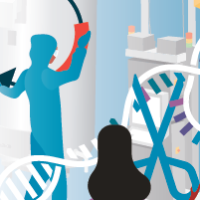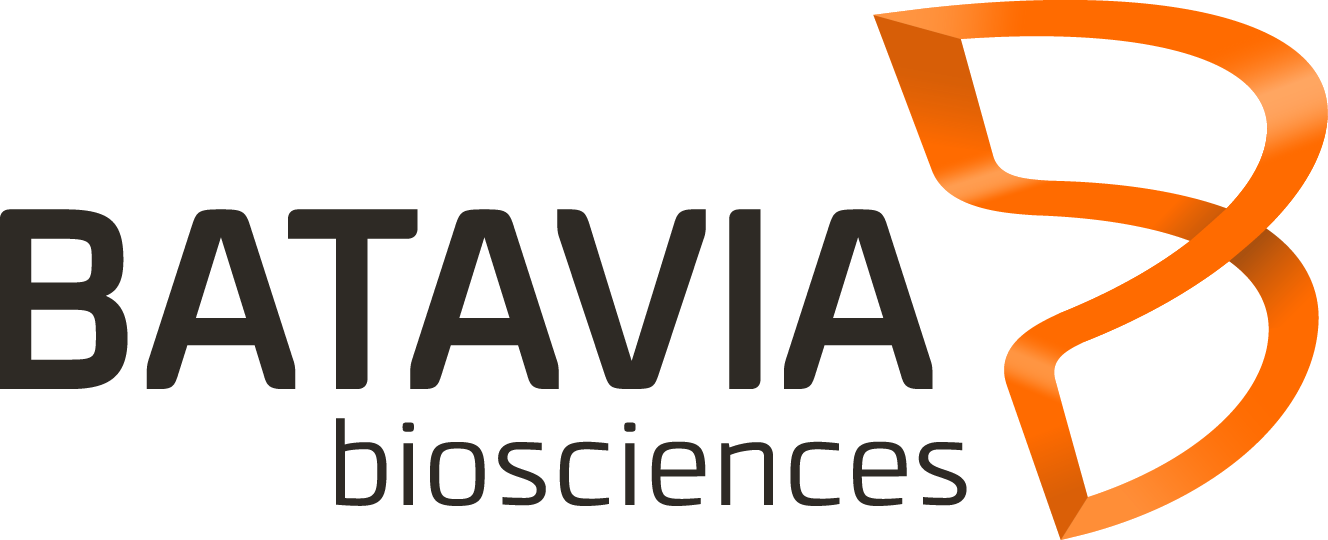How are fixed-bed bioreactors set to change viral vector processing?
Cell & Gene Therapy Insights 2020; 6(3), 215–220
10.18609/cgti.2020.028
Q Batavia possesses capabilities and expertise across a wide range of vector types and culture systems. How has your work evolved as novel technologies have emerged?
PV: I’ve been with Batavia for 8 years and when I started, there was a lot of effort going into cell line and media development – trying to increase or optimize the production yield. In the last 4 years, I see a shift towards process intensification. We are now involved in many projects with a technology development aspect, specifically for fixed-bed bioreactors such as the iCELLis® (Pall Biotech) and the scale-X™ (Univercells) platforms. So, we’ve moved from trying to optimize the yields to also optimizing the technologies we use, which is a very interesting development area.
Many process development trajectories for viral vectors are comparable, we work with a transfection system in combination with gene of interest A or gene of interest B. Alongside that, we have gained an extensive amount of knowledge on the fixed-bed bioreactors that we can utilize from project to project.
Fixed-bed bioreactors have caught the imagination of the viral vector bioprocessing space. What are the chief pros and cons of these novel systems, versus the more traditional Cell FactoryTM/cell stack adherent systems?
PP: Cell stacks are uncontrolled systems. It is difficult to track the progression of your process, and as a result of that when using these systems there’s an inherent chance you have variability in the batches that you produce. They are also very labor intensive in terms of the manual intervention they require, and are therefore prone to more contamination.
On the other hand, if we talk about the yields of a particular viral vector or any viral vaccine candidate, it depends on the process. As we have a lot of experience, we find that after proper process development fixed-bed processes have similar or higher yields than the traditional systems. If you also take other cost determining factors into account, such as the amount of manual labor and capital investment needed, the fixed-bed system results in significantly lower Cost of Goods (CoGs).
PV: What I observe with most of our projects is that clients come in with a really promising gene therapy product candidate and are typically producing it in small-scale T-flasks. Then the initial thought is “let’s do that in a Cell FactoryTM, so you get the same process in a slightly bigger format”.
That may well provide sufficient material for clinical Phase 1 but beyond that to late stage or commercial scale, you have to scale out creating more batch-to-batch variations that later have to be pooled into one clinical batch. The manual handlings required with Cell Factories just creates a multitude of opportunities for human error and contamination. And that’s one of the reasons I believe fixed-bed systems to be a great improvement compared to traditional systems. It’s just one handling of a single machine, and you can do the transfection in a well-controlled high cell density environment. Moreover, in the fixed-bed systems all cells are already centered in the bed in a high cell density to low volume ratio providing a very clear target for your transfection, minimizing the use of costly transfection reagents and DNA.
PP: It does require more investment in process development at an early stage, which could create a struggle for clients who want to rush to clinical phase. On the other hand, you need to have your end goal in mind. Particularly with gene therapies, where production yields are typically quite low, you will need larger scales quite early in the process. That’s one area where fixed-bed systems provide better support.
Additionally, one of the chief roles of fixed-bed bioreactors will be, since the process is totally controlled, to make it easier to implement the principles of Quality by Design; and ultimately to have better product characterization. These things are difficult to implement in cell stack-based production where the process is not under your control.
JVV: On the other hand, about 50% of new products will not enter or fail during Phase 1 clinical trials. Many academic centers, for example, won’t have the money to invest in early stage process development. Therefore, in that setting, you see the need to move as quickly and as efficiently as possible into Phase 1 clinical trials. Once they have met that criteria and pass that phase, you will then typically see the move to a fixed-bed production method and more robust processes. So, with new drug products there’s always a balance between benefit, costs and perceived risk.
For us, from a quality and development point of view, fixed-bed bioreactors are promising for the scale up to commercial manufacturing. It’s much easier to perform comparability studies with this production method.
Q How do the currently available fixed-bed bioreactors compare to each other?
PV: I’ve personally worked a lot with both iCELLis Nano and the scale-X hydro and carbo bioreactors. The iCELLis systems have been around longer, and are therefore further evolved towards a good manufacturing practice (GMP) environment.
Both systems are truly ground-breaking innovations. However, their introduction into GMP settings is not straightforward. There are a number of technical aspects to optimize; but we’re seeing progress in this regard.
In terms of scalability, I personally feel the scale-X has a strong advantage at the moment. The scale-X systems are available at three different scales, supporting a larger range than the iCELLis. Univercells offers the research-suited, scale-X hydro, which has 2.4 m2 surface area, similar to the iCELLis Nano with up to 4 m2. Then there’s the mid-sized reactor, the scale-X carbo, which is in the 10–30 m2 range, which is excellent for process development projects, because it makes enough product in our hands for clinical Phase 1 and 2 trials. The process can then linearly be translated to the largest scale, with 200–600 m2. In contrast, for the iCELLis there is a gap between the 4 m2 and the 500 m2 system, which can be too large for some projects.
PP: What we can safely say is that both of these fixed-bed bioreactor systems are actually very similar in terms of supporting high cell density growth of adherent cultures, and obtaining the desired yields. This is supported by numerous studies that have been presented at conferences and in scientific publications, showing a lot of similarity between these two systems when it comes to production yields.
Q Considering the cost aspects of the fixed-bed adherent bioreactors, what are the key cost drivers for each of these platforms?
PP: Currently, most viral vectors are still being produced using the traditional systems, which have a high CAPEX demand with respect to the size of the facility and infrastructure they require. On top of that, they have high labor costs, and since these are totally manual and uncontrolled systems, it results also in high OPEX costs. In addition, in the CoGs calculation you should also take into account the inherently high batch-to-batch variability and high contamination rate. These considerations add up to high manufacturing costs.
On the other hand, if we look at the fixed-bed bioreactors, these are single-use systems that offer full control over the process. However, they do require individual development for a particular vector candidate with some process-specific development and implementation in the facility, as well as personnel training, which must be calculated in your cost modelling.
In a very recent study where we compared cell stack systems with fixed-bed systems for the production of several vaccine candidates, we see that the CoGs for fixed-bed systems is between 20 to 80% lower than the traditional systems (depending on the cell line used and the characteristic of the viral vector candidate).
Taking into account all the cost drivers, fixed-bed bioreactor systems do result in significantly lower manufacturing costs per dose.
Q What about the cost comparison with suspension cultures?
PP: In principle, suspension cultures always have a lower CoGs compared to adherent cultures. That’s simply because with suspension cultures it’s easier to scale up and well established for protein and antibody manufacturing. When it comes to microbial or even mammalian cultures with microcarriers, suspensions always tend to have a lower CoGs, and that’s simply based on the scale at which production can be carried out. However, in general you don’t often have a choice. Not every product can be produced with suspension cells and not all adherent cells can handle the sheer-stress needed in microcarrier systems to keep the beads in suspension.
In the gene therapy field, having to perform transfections, we don’t often see comparable titers from suspension cultures versus adherent cultures. It is much more difficult to obtain those yields ratios to the same level, which of course play a really important role in cost modeling.
Q Are there any particular regulatory and quality considerations related to use of novel fixed-bed bioreactors for viral vector production to consider?
JVV: When introducing new technologies, you always have challenges with the regulatory authorities. You have to show that your product is at least as safe, high quality and effective when using the new technology compared to the old/previous technologies and for that, you need data. That’s why at Batavia we are so focused on high quality data in early development. Your process development is the key to the data delivered later on when you go into the GMP facility for clinical production.
Another aspect is that you also should look into compatibility of the product with these new disposable systems, for example, USP class 6 materials. But also the controllers are important to qualify as they deliver the data that dictates the process, and should therefore be CFR part 11 compliant.
Your whole validation strategy and qualification strategy is important, and you should think about that from the beginning and evolve it over time. Defining your operating ranges is therefore very important, because if you perform your process within the validated operating ranges, you can deliver a high-quality product.
PV: At a recent user day for iCELLis, I asked whether anyone was already talking to regulatory agencies about how they deal with the cell count and state of the cells at the moment of infection? It’s an obvious critical process parameter, but at the same time everyone in the field knows that it’s very hard to do a representative count and make a representative measure of the cells at the moment of infection, or the moment of harvest for that matter. I found it very interesting that no one has been talking to regulatory agencies on this particular topic yet. Or if they are, they didn’t want to share it.
JVV: Cell count is a great example of where we are looking for a replacement for the traditional cell count method as it’s just not possible to take representative samples from the fixed-bed bioreactors. It requires a new way of thinking for us, but also for the regulators. For decades that they’ve looked at cell density at infection, or transfection, and now there is no representative value for this critical process parameter. You must show that you have a stable process, and that the product you deliver complies with the critical quality attributes that you have defined upfront. I think is set to be a tough discussion with the regulators. They are not as involved in the process development as we are. You have to educate them in the new technologies and process control which can be challenging.
Q What is the state-of-the-art in terms of process analytical technologies that are applicable with these platforms?
PV: One of the key developments at the moment is the implementation of online cell density probes, and analyzing their performance as cell count replacements. At the same time, I think a lot of focus is now shifting towards measuring online oxygen consumption and metabolites, trying to integrate online sampling systems to get more consistent data. Continuous measuring of critical process parameters instead of getting just one data point and validating that for go/no-go, provides a more valuable profile and enables more in-depth process understanding.
Q Where can improvements be made in this regard?
PV: I think a lot of the previously mentioned technologies are more targeted at the cell culture phase, but one approach that could help optimize the infection step is integration with online Raman technology. I think this is a very promising approach and I look forward to see how it will provide valuable insights in the vector production process to determine the best moment to harvest.
PP: In addition, there’s also some work being done in electron microscopy, where you can obtain information on how much of the viral vector you have produced, much faster than with a classical cell-based assay (e.g., TCID50, PFA or FFA). I see electron microscopy being used more and more, to help provide insights into how the virus is being produced in your system within a couple of hours. I can imagine it would be difficult to integrate such a system in a GMP setting, but at least it gives you controlled information during your process development when you’re using fixed-bed bioreactor systems. Also, innovation is being done in the qPCR technology field, potentially becoming a faster and more accurate alternative for cell-based assays.
Q What does Batavia’s approach to a viral vector process development project utilizing a fixed-bed adherent culture system look like? What would be the key considerations for each of you?
PP: We normally start with a small-scale development, which involves work in T-flasks or in cell stacks. We would typically do a Design of Experiments (DoE) study to determine the critical parameters which could influence the yield. Then those results are used to come up with the initial settings to be used in the fixed-bed bioreactor. These could include parameters such as seeding density, cell density at infection, multiplicity of infection, as well as the day of harvest. DoE studies are powerful tools to predict your yields as well as some of these critical parameters.
Next, we do the initial process development in fixed-bed bioreactors using the smaller scale fixed-bed systems, like the scale-X hydro or iCELLis Nano. Depending on the viral vector product, and how much process development it would require, it could be somewhere between 4 to 10 runs depending on how well the process is established. The process development also includes upscaling the bioreactor process to 10–30 m2 fixed-bed bioreactors. Once, the scaled-up process is established, it is used for the manufacturing of product for toxicology studies and then later for Phase 1 clinical studies in a GMP environment.
At Batavia, the same team that develops the production process, executes the production in GMP. This way we avoid a time consuming and risky tech transfer.
PV: The benefit of going over this process multiple times with different clients, is that we know the most efficient route and can make proper risk assessments of potential ‘short cuts’. I think that’s the added benefit of being a contractor: you do this more often than a biopharmaceutical company.
Pranav has painted a picture of the complete process, but when a customer comes in we can tailor our approach to their needs. It all depends on how well established their current process is and what is still needed to make it fully GMP compliant.
JVV: For me as a qualified person (QP), it’s very important to be involved in the early development, because it’s essential to keep in mind that you want to implement it in GMP conditions. You have to consider various aspects, such as your raw materials: Are they compliant with GMP requirements? Do we see risks for the process? From a quality or safety point of view, can we introduce the choice of equipment in the GMP facility?
I’m involved in the whole process starting at the beginning, and define what we are going to measure together with the USP and DSP team members, what the critical process parameters are, and what samples we need to take. The analytical part is also extremely important, because you can have a nice process but if the data coming from your assays is not reliable, the process development will fail. Therefore, we are closely involved in the development and validation of the assays, to ensure the data is reliable and useful.
Q Looking to future, where next for viral vector culture system innovation? In what directions do you expect this field to move?
PV: I think the whole industry is moving towards further understanding these systems, and the next critical step will be standardizing methods. There is a lot to standardize! Understanding the growth of different cells in these systems and establishing the optimal transfection environment are central to optimize and standardize these production methods.
JVV: Ultimately standardization will also help reduce variability from batch to batch and increase process knowledge, which in turn will have a positive impact on lowering costs for the currently very expensive gene therapies.
PV: There are so many gene therapy candidates, it’s incredible and the pace of developments is rapid. In order to support this growth, standardizing the fix-bed bioreactor methods towards robust production of high quantity and quality material is vital.
In my view that’s what Batavia can offer – we can help to put down that standard track.
PP: Another direction Batavia is moving in is working with its partners to develop what we call modular production platforms. These are production units where the USP, DSP, as well as the final inactivation/aliquoting/fill are combined in three modular units. This gives the manufacturer an opportunity to have a cellular growth area of 600 m2 in a GMP room that’s roughly 60 m2. Having these steps linked together in a modular fashion increases the productivity, lowers CoGs drastically, and is capable of generating commercial amounts.
With the design of such a facility in place, we look forward to the first facility with these modular production platforms being put into use. We are currently busy with CoG calculations to see how such a facility would perform in the long term.
Q What will be the key priorities for each of you, and for Batavia Biosciences, moving forward?
PP: I’m currently working with several viral vector and viral vaccine candidates. All these projects involve performing DoE studies and then setting up the starting point for fixed-bed bioreactor development processes. I will also be doing CoG analysis simultaneously for some of the clients.
JVV: We have recently finalized a pre-clinical batch on a fixed-bed bioreactor. Now, the aim is to move that into GMP to produce a clinical batch, and that will start a discussion with the regulators. Because we provide support for the Investigational New Drug or Investigational Medical Product Dossier, this technology will need to be described as part of the CMC section. This will be the first time, for us at least, that we describe this process in a submission for a clinical trial, which is exciting.
You see a lot of movement in the regulatory guidelines, such as the new ATMP guidelines in Europe. Therefore, GMP becomes more and more important for gene therapy products too. Our aim is always to follow the field and requirements next to identifying opportunities to improve our processes and deliver the quality we want for our customers.
PV: Too many to mention! We have a multitude of small-scale projects going on but what was just mentioned regarding the isolators is one that I am heavily invested in. It’s a project investigating a highly intensified polio vaccine (sIPV) production process completely taking place in isolators. These isolators would have the benefit that they can be placed anywhere without high demands on the production environment and already provide the necessary containment and safety. With this, we expect the supply of polio vaccines could be connected close to the location of demand. We want to show the potential of these new production methods from a CAPEX and OPEX perspective. So really interesting times ahead.
Authorship & Conflict of Interest
Contributions: All named authors take responsibility for the integrity of the work as a whole, and have given their approval for this version to be published.
Acknowledgements: None.
Disclosure and potential conflicts of interest: The authors declare that they have no conflicts of interest.
Funding declaration: The authors received no financial support for the research, authorship and/or publication of this article.
Article & copyright information
Copyright: Published by Cell and Gene Therapy Insights under Creative Commons License Deed CC BY NC ND 4.0 which allows anyone to copy, distribute, and transmit the article provided it is properly attributed in the manner specified below. No commercial use without permission.
Attribution: Copyright © 2020 Batavia Biosciences B.V. Published by Cell and Gene Therapy Insights under Creative Commons License Deed CC BY NC ND 4.0.
Article source: Invited.
Interview conducted: Feb 11 2020; Publication date: Apr 28 2020.




